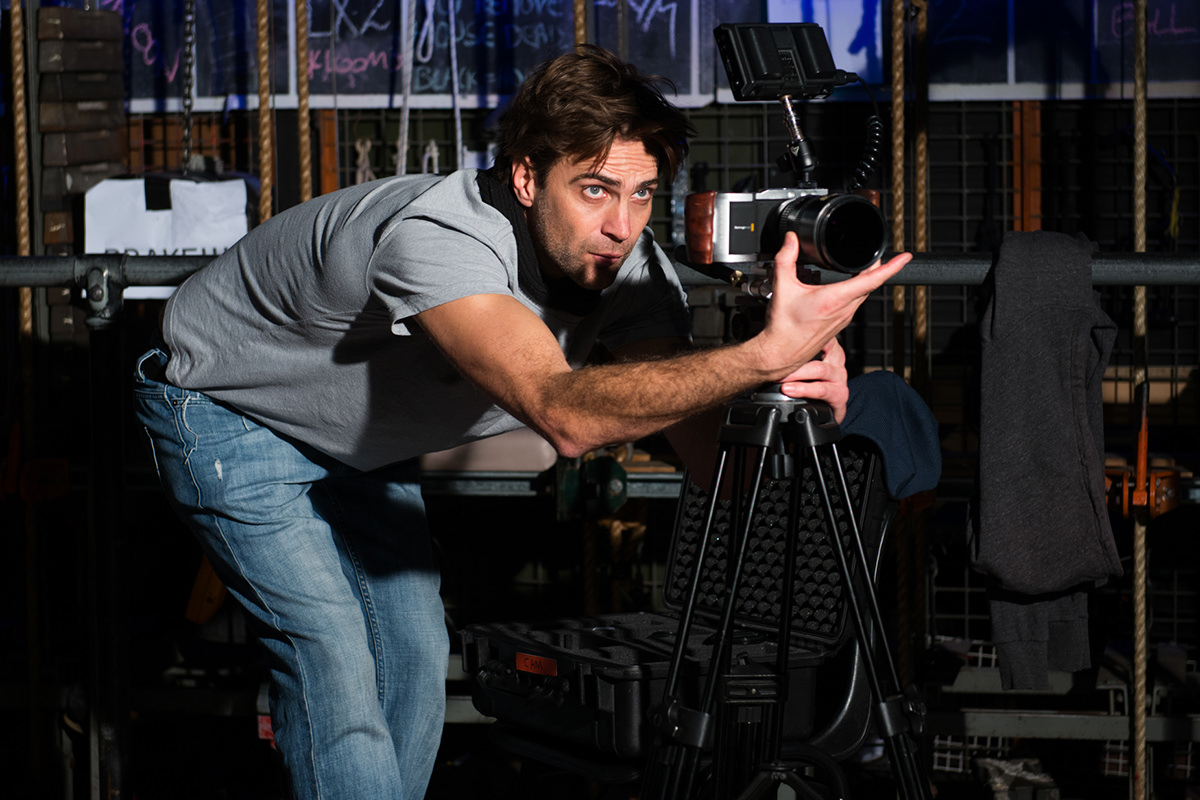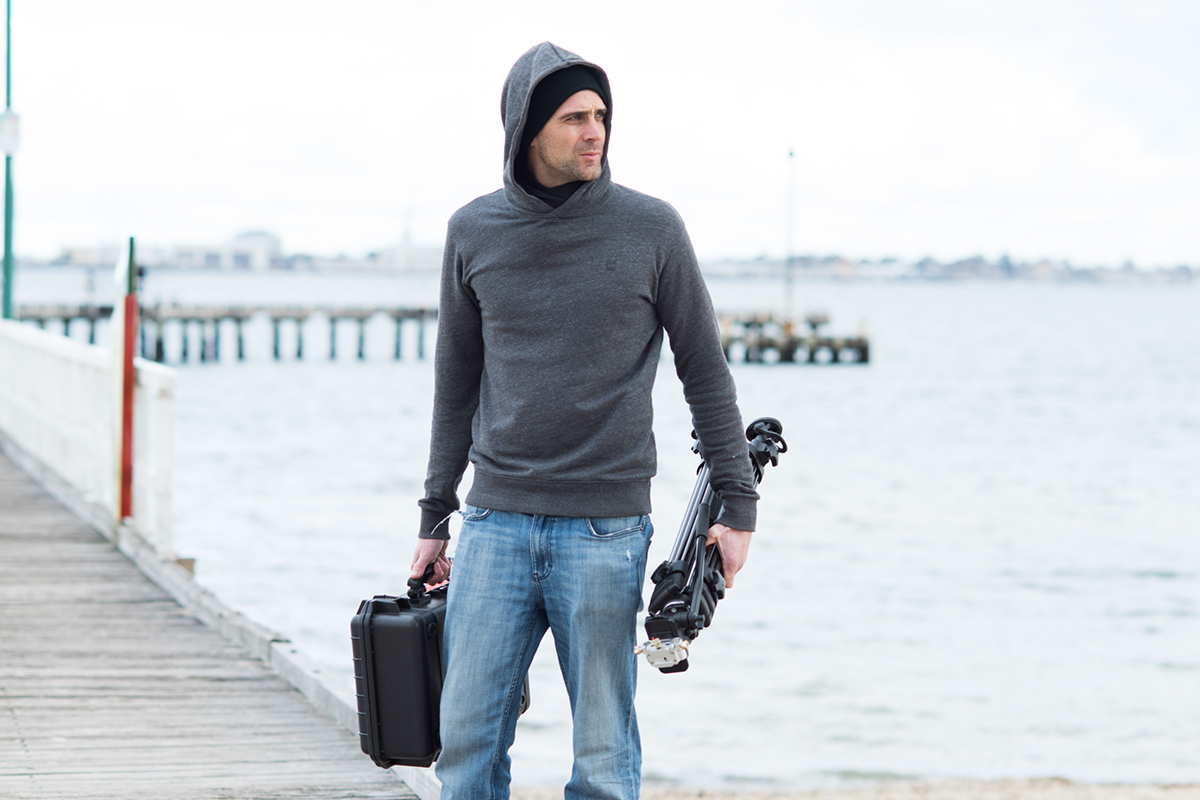Advice from Isolation: Ben Steel on Mental Health
How to emotionally and psychologically survive and thrive in the entertainment industry.
 Ben Steel, writer, director and co-producer of The Show Must Go On (Photo: Vicki Jones)
Ben Steel, writer, director and co-producer of The Show Must Go On (Photo: Vicki Jones)
As we #StayHome to help combat COVID-19, members of the Australian screen sector share their career learnings in the Advice from Isolation series. Subscribe to Screen Australia’s newsletter for additions to the series.
At a time when we are all thinking about survival in the entertainment business, I am reflecting on what I learned about mental wellbeing from my colleagues during the making of my documentary, The Show Must Go On, which explored mental health in the entertainment industry. I am a completely different person now, compared to four years ago. Back then I was struggling with most aspects of my personal and professional life. I had anxious episodes and spent most of my time under a cloud of depression where I considered taking my own life.
The situation I found myself in compelled me to explore the mental health challenges I and many others in our industry were facing. I’m not a trained psychologist or mental health expert, but over the last four years I’ve been speaking to the experts and hundreds of people from all corners of the entertainment industry.
Without a doubt, pursuing a career in the entertainment industry presents many people with challenges that create pressure and psychological stress, which can be difficult for even the most experienced to navigate. These challenges can include long hours, lack of sleep, low pay and financial insecurity and often weeks and months working away from family and friends. These individual challenges are difficult enough to handle one at a time, but in the entertainment industry we are often facing these and others all at the same time. And then came COVID-19…..
With such an onslaught of trying conditions, you might be asking, “Can anyone emotionally and psychologically survive and thrive in the entertainment industry?” The short answer is: yes they can.
Through my exploration I’ve come to realise that in our fast-paced industry matters of the mind are often not given much attention and our mental health is often taken for granted, with very little attention given to daily maintenance at all. We are all much more aware of how important physical health and diet are in maintaining a healthy life. Mental health and mental fitness are just as important, yet we rarely spend any time developing and strengthening our emotional and psychological functions. It’s completely normal to have reactions to the challenges that we face, but how are we expected to make the best choices for our wellbeing without guidance and practice? The mind is no different to any other muscle in our body, it needs exercise to become strong and to build resilience.
Creative people are no different from any other person on the planet, but there are unique aspects to our work lives that we must master in order to live fulfilling and mentally healthy lives. Pursuing a creative career requires a depth of work like no other industry, and puts the creative in a workplace environment like no other.
 Ben Steel, The Show Must Go On (Photo: Vicki Jones)
Ben Steel, The Show Must Go On (Photo: Vicki Jones)
Unlike many other industries, the majority of the workplaces in the entertainment industry are temporary. We don’t have a fixed location to go to work each day, one employer, HR departments, access to EAP counselling programs, employee training, a clear path to promotion and/or a consistent salary. Most of us are contractors running our own creative businesses, and while working for yourself can bring much freedom, spontaneity, and enjoyment it can also become a very isolating and lonely pursuit fraught with instability and constant change. Maintaining strong and meaningful relationships with family and friends is vital for survival in our industry. Humans thrive and grow from connections, and these relationships help to provide stability and consistency in our lives and become the foundation of our support network.
Think about the product that we ‘manufacture’ in our industry for a moment. We create a brand new product from scratch every single time with some taking many years in development; our production line is built and then deconstructed; our staff are employed only for the manufacture process; we market and sell this one product direct to consumers, and then we start the process all over again. Our industry doesn’t benefit from economy of scale like other industries that manufacture products. Furthermore, the products we produce aren’t as tangible as they are in other industries. We produce stories that reflect the complexities of humanity and the human experience so people can feel connected to society and themselves more deeply. Producing this type of product requires the creators, collaborators, and crew to be exposed to and delve into the depths of their own psyche and past, as well as be incredibly empathetic and sensitive to the life experiences of others.
All of which means, people working in the entertainment industry spend quite a lot of time in the emotional world. We have very unique workplaces filled with emotional beings. This means we build very strong bonds with our colleagues and product that are felt very deeply and can bring about vulnerabilities and sensitivities like no other industry. We feel very passionate about the work that we do, and are bearing our soul with our product. That’s why rejection, criticism, or lack of work/sales hurts so much for many in our industry. We find it very difficult to separate ourselves from the product we are creating.
Similarly, what we do as a profession often becomes a big part of our identity, and sometimes, as it did in my case - completely became my sole purpose in life. There is nothing wrong with ambition, or pursuing your dreams or goals, but the danger can be that you define yourself only by what you do, and not more broadly by who you are.
Sam Neill shared his thoughts on identity with me in The Show Must Go On, saying: “If you think of yourself as an actor or a dancer or a singer, and you’re not singing and you’re not acting or dancing, what are you? Most people are between jobs, what are you between jobs?
And if you think of yourself as an actor and you’re not actually acting - you’re kind of no-one. And the way out of that is to separate yourself from your profession, that’s what I do that’s not what I am’. I do acting but I don’t think of myself as an actor.”
Learning and developing our technical crafts takes a lot of time, dedication, and sacrifice to master, and it’s easy for this pursuit to consume all of us at the expense of passions. But it’s essential for our wellbeing that we develop interests or hobbies outside of our work, activities that bring us joy, help us to relax, rejuvenate, and replenish our zest for life.
Ultimately our emotional and psychological wellbeing are in our own hands, but there is ever growing awareness and support becoming available from industry organisations, guilds, groups, and individuals who care about our welfare*.
Together we have a shared responsibility to improve wellbeing in our beloved entertainment industry, so that it is possible to emotionally and psychologically survive and thrive and that we all are able to live fulfilling and mentally healthy lives.
Ben’s 5 tips:
1. Practice daily gratitude: note 3 things you are grateful for today (sunshine, being healthy, my dog)
2. Check in with yourself: how am I feeling right now? What do I need?
3. Pursue joy: what activities make me feel good? (Reading, walking, cooking)
4. Try something new: choose to break a routine or learn a new activity.
5. Help others: give to someone else - it feels great!
- Ben Steel is the writer, director, co-producer of the documentary The Show Must Go On, which shines a light on mental health and wellbeing in the entertainment industry. The film is distributed by Film Art Media and is currently available to watch on ABC iview.
- Read how Ben Steel is working on a national Wellness Roadshow here
- Ben would like to acknowledge the expertise and support of Catreeana Saunders, Jeff and Julie Crabtree, Prof Adrian Fisher, Dr Mark Seton, and Susan Cooper for contributing to his personal wellbeing development, and for helping to understand wellbeing in entertainment.
- *Support Act 24/7 wellbeing helpline - 1800 959 500 - a free, industry specific, confidential phone counselling service dedicated to help those who are concerned about any aspect of their mental health and wellbeing. Entertainment Assist champions of mental health and wellbeing for the entertainment industry.
- Crisis support services can be reached 24 hours a day: Lifeline 13 11 14; Kids Helpline 1800 55 1800

What to read next
The lessons learned journeying from a sole trader to partner in a company that produces 130 hours of TV and feature documentaries every year.
20 Apr 2020
Veronica Fury